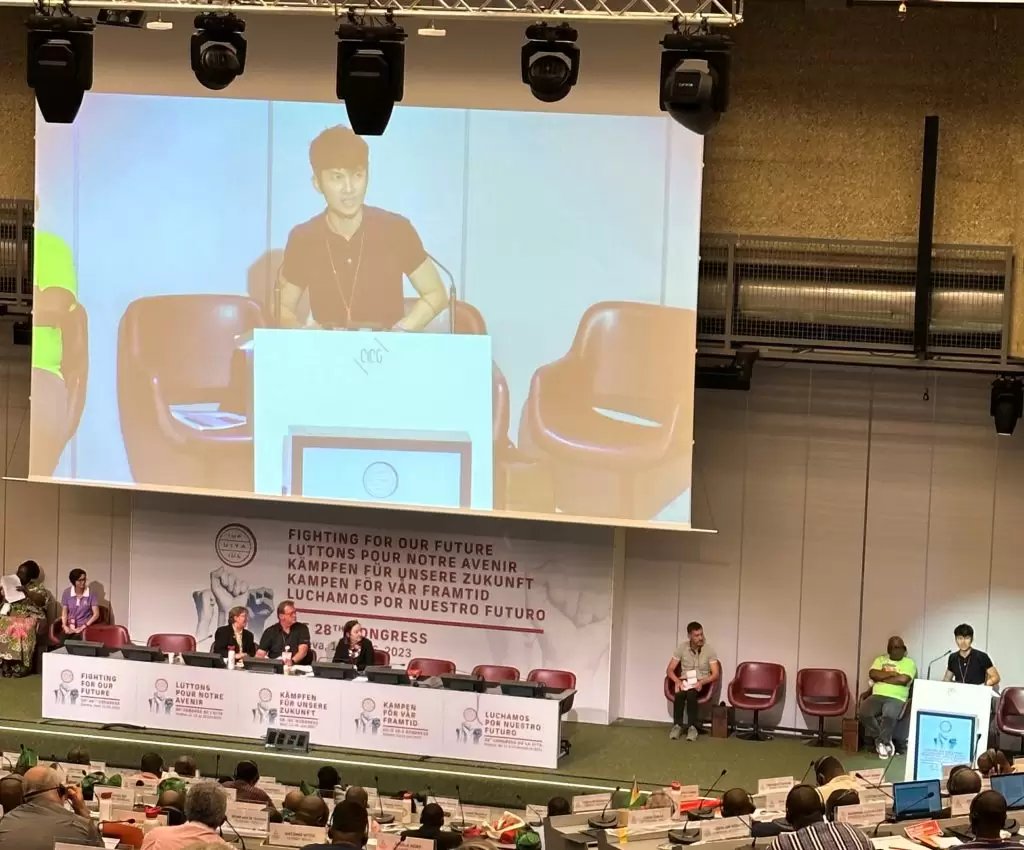My name is Jeff Nonato, a trade union representative of IUF affiliate FILCAMS CGIL in Italy, one of the three Italian trade union federations organizing hotel workers, fast food workers, and domestic workers, among others. As a former fast food worker and a member of the LGBTQIA+ community, I am grateful for the opportunity to share some thoughts as Pride month draws to a close.
Allow me to begin by acknowledging the challenges faced by LGBTI workers and allies in Italy. Over the past eight months, Italy has witnessed the rise of Giorgia Meloni’s far-right party, Fratelli d’Italia, leading to the most right-wing government since the fall of Mussolini’s fascist regime 80 years ago.
Meloni’s program is driven by nationalism, anti-immigration sentiment, opposition to what she calls “gender ideology,” and the active promotion of the concept of a “traditional family.” These positions can have far-reaching implications for workers with diverse family structures.
What makes this situation even more concerning is the deliberate efforts made by Meloni’s party to forge alliances with other far-right parties across Europe and beyond. These alliances include Vox in Spain, Viktor Orbán’s Fides in Hungary, and The Law + JUSTICE party in Poland, to name a few. As international trade unionists, it is crucial that we do not overlook these alliances, as they contribute to the spread of regressive policies.
Call for Policy Changes:
Given these challenges, our role as trade unionists becomes critical in defending civil and social rights. We must urgently address fundamental matters such as marriage equality, the recognition of diverse family structures, comprehensive sex and affective education in schools, and the banning of harmful practices like conversion therapy that falsely claim to change someone’s sexual orientation. It is disheartening to note that Italy is among the few EU countries lacking laws specifically targeting LGBTI-phobia.
As trade unionists, each one of us plays a vital role in shaping inclusive practices in workplaces that transcend existing legislation. Our influence extends beyond labour issues, as we have the power to provide social work protections in areas where the law falls short. One essential tool at our disposal is collective bargaining.
Collective Bargaining:
Collective bargaining empowers us to negotiate not only for fair wages and better working conditions but also to address the gaps in existing laws. It allows us to pave the way for measures that go beyond legal requirements, establishing a culture of acceptance, support, and protection against discrimination and mistreatment.
Therefore, it is our moral duty as a body to defend collective bargaining where it is needed, where it is weak, and most importantly, where it is under attack. By continuously advocating for collective bargaining, we can create workplaces that embrace every individual and worker, irrespective of their background, identity, or orientation.
Through our collective action that we can foster a more inclusive and equitable society.
Viva i lavoratorə!
Viva la UITA!
Viva il Sindacato!
